Manuel Tzoc was six when he and his family emigrated from Totonicapán in Western Guatemala to the country’s capital, Guatemala City. Tzoc, who calls himself Manu, is Kiche Maya, part of the Indigenous Mayan people from the midwestern highlands of Guatemala. But over time, Manu and his family found their Indigenous culture erased as they tried to integrate into the capital, where most people speak Spanish, wear Western clothing and have a different culture.
Now 38, Manu still lives in the heart of Guatemala City, a spot rife with queer folks from around the country who struggle to fit in. A visual artist and poet, he is reconnecting with his Indigenous roots—a part of his identity he says is inextricable from his sexual and gender identity as a queer.
It’s at the intersections of Manu’s identity that so much of Guatemala’s problematic history with both Indigenous and queer communities comes to light. Once the heart of the Mayan world, Guatemala is a multiethnic and multicultural country—the most populous Central American nation, with a history of Spanish colonization, military regimes and civil war. Almost half of its population is Indigenous, and this diversity translates into a multiplicity and a complexity of realities for queer Guatemalans. One thing they all have in common is the constant struggle to exist and be accepted.
As a result, LGBTQ Guatemalans often find themselves fighting on all fronts: Against a government that does not grant them their most basic rights and protection, against a traditional and religious society that marginalizes them and against their own divided community that rejects a lot of its members who do not fit the dominating standards. “Guatemala is a violent and macho country. A country dominated by the military, religion and narcos. A country that brings on a constant fight for queer people,” Manu says.
Manuel Tzoc on Feb. 11, 2020, in Guatemala City. Credit: Jonathan Bertucchi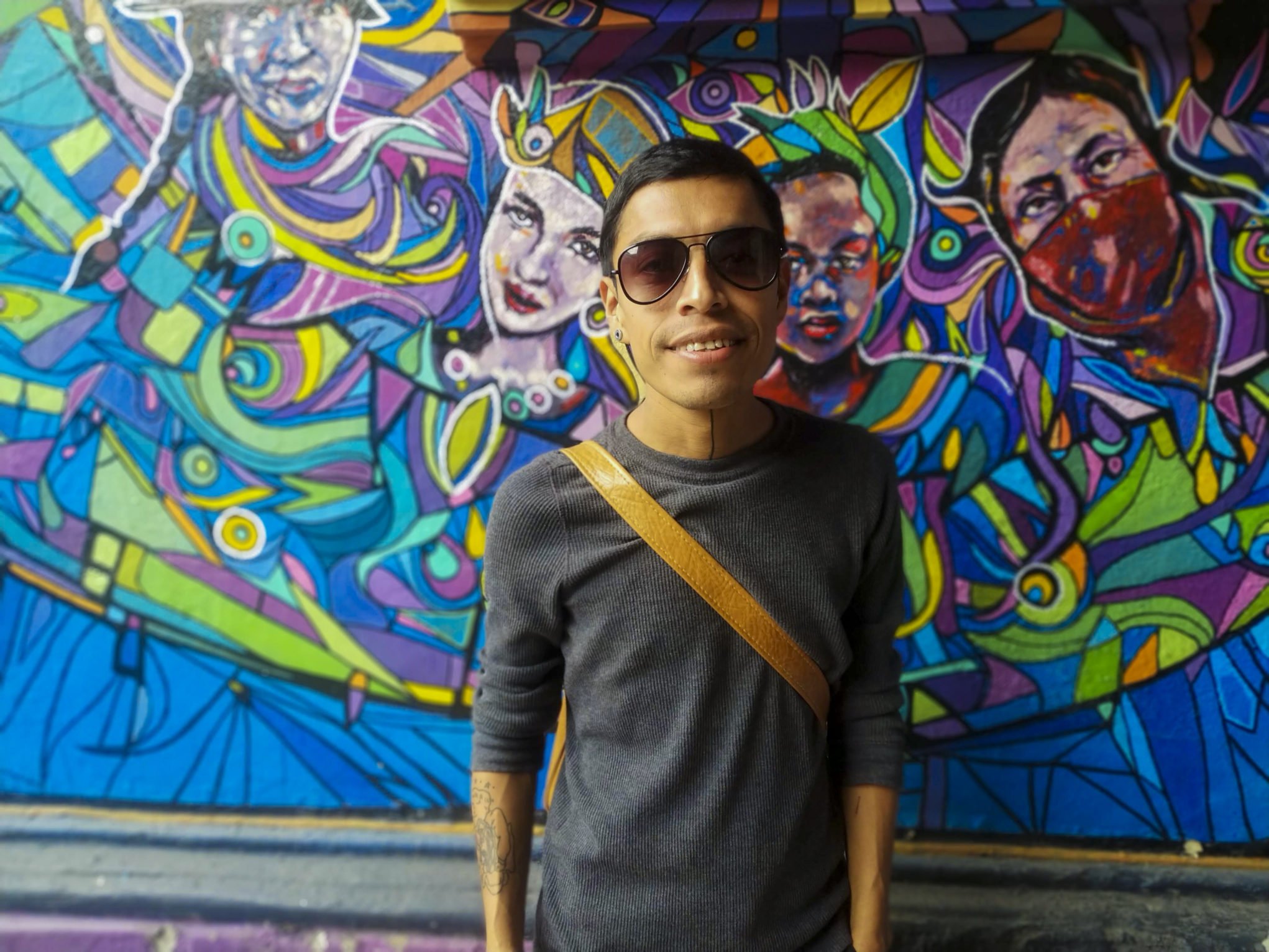
To reclaim and reappropriate queerness within local realities and cultures, Manu identifies as a Marica (“fag”), and as Cuir. “I am a sexual dissident who stands against a homophobic system that only values traditional sexuality,” he says.
Historically, Mayan communities—who still make up approximately 40 percent of the population—accepted queer people. There was a deep connection between spiritual rituals and queerness; shamans and priests could engage in ritualized homosexual acts with their patients or with the gods. But nowadays, out LGBTQ members of Indigenous communities are often not accepted. “Colonization and religious fundamentalism screwed everything up,” Manu says. He feels lucky that his family was accepting of his queerness. “But there are much less lucky stories, very sad and difficult stories.”
Many of the queer Indigenous people rejected by their community end up in Guatemala City, a less conservative spot in the country. But living in the capital brings about different types of rejection, with racism occurring even within the LGBTQ community. “Many end up changing their names to avoid being discriminated against and they stop speaking their language,” Manu says. “This is self-alienation.” He knows it firsthand, having experienced discrimination because of his last name and appearance. It made it difficult for him to find a partner from Guatemala; he now dates someone from Chile.
“The LGBTQ community’s divisions only serve to weaken its fight against the rest of Guatemalan society, where queer people are socially ostracized and face tremendous legal challenges”
This racism is cultivated by the domination of a “white” queer model, based on white American and European communities. According to Manu, queers in Guatemala who do not fit this perfect whitewashed aesthetic are often excluded from the community. People of colour and Indigenous people, trans people or poor people are systematically discriminated against. “I have always been told that I am not a good gay because I am not white, I don’t have the perfect body or the money,” Manu says.
The LGBTQ community’s divisions only serve to weaken its fight against the rest of Guatemalan society, where queer people are socially ostracized and face tremendous legal challenges. Many of them go through traumatic experiences, rejection or violence from their families, larger society and the government without much solidarity from the community.
Enrique Morales, 40, is among the queer Guatemalans who have experienced a painful coming out. When he was 18, his father took him to a restaurant after he found gay erotic magazines in his room. “I picked the nicest restaurant in town. I thought, ‘If he is going to kill me, at least I’ll have a great last meal,’” Morales says. “I was so scared, I thought I was going to get kicked out of the house. When I admitted being gay, his face looked as if his whole world had fallen apart.” Morales’ father asked him if he was confused about his sexuality, and he said yes. “I knew this is what he wanted to hear,” he says. Morales was then put through a five-year conversion therapy process—his father took him to church, shamans and psychiatrists.
The last psychiatrist Morales saw changed everything. Morales told him right away: “I am gay, I am okay with it and I do not want to change.” The psychiatrist told Morales that he could be whoever he wanted to be and that the issue was not with him but with his family. He then invited his parents to therapy. “For the first time my father was asking about my life and trying to understand me,” Morales says. “After a two-year process, he became my friend.”
Morales says his parents now accept him for who he is, but many challenges still stand in the way of full acceptance for both him and the rest of the LGBTQ community. “I want to be able to marry my [partner] someday,” he says. “We have to fight hard for our rights.”
Same-sex relations are legal in Guatemala, but queer couples currently have no legal recognition. In January 2018, the Inter-American Court of Human Rights ruled that gay marriage is a human right and required its recognition. This ruling is binding for Guatemala; yet, so far, there is no inclination to abide by it.
Protesters against anti-LGBTQ law 5272 in Guatemala City. Credit: Enrique Morales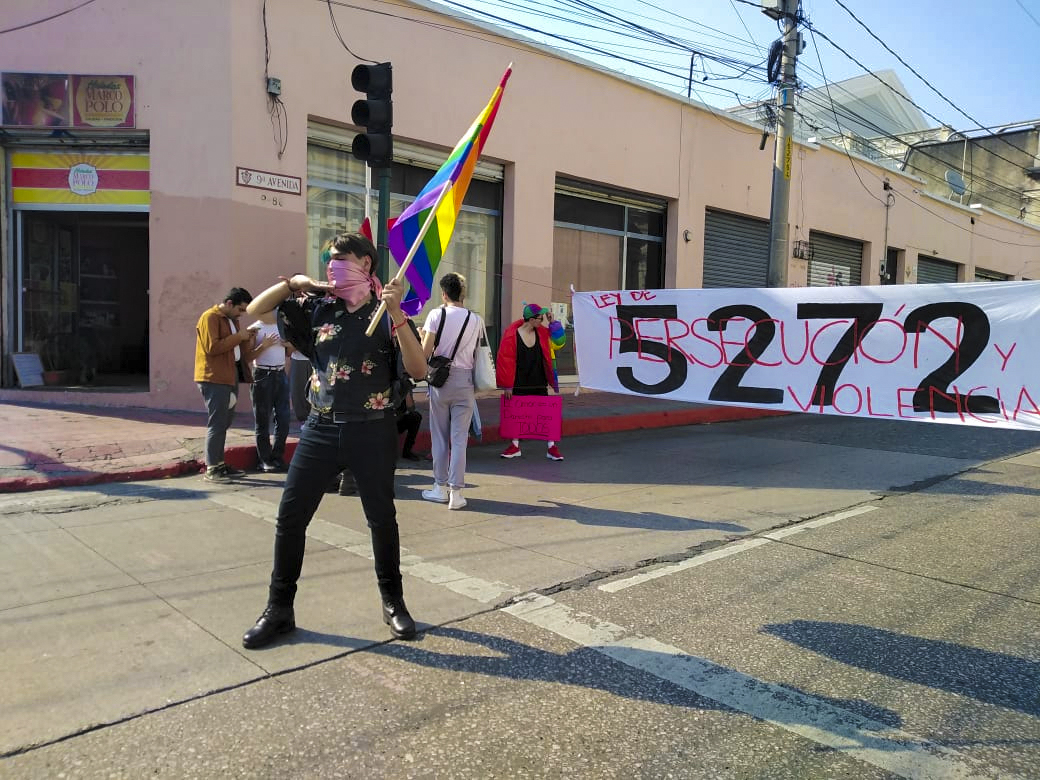
Even worse, efforts to shut down marriage equality altogether have reached Guatemala’s Congress. In April 2017, a group of conservative Guatemalan lawmakers tabled a conservative and controversial bill, law 5272 (Law for the Protection of Life and Family), that aims to prohibit gay marriage and to define family as a father, mother and children. The bill establishes “freedom of conscience and expression,” which would protect people who don’t want to accept sexual diversity as normal. (This, despite Congress having elected its first openly lesbian member, Sandra Morán, in 2015, and openly gay member Aldo Dávila in 2019.)
Meanwhile, discrimination against LGBTQ Guatemalans is not prohibited, and queer people can be denied employment, education, housing or healthcare. Trans Guatemalans cannot change their legal gender on their government-issued identification; a bill to recognize that right was rejected by Congress in 2017. As a result, violence toward the community is intense. Attacks are not uncommon and are rarely punished, particularly when they involve trans folks. According to Oasis Legal Services, an LGBTQ+ defence organization, there were at least 232 heinous, hate-driven murders in the country in 2017 alone. And, last April, a lesbian couple was found dead near the capital with homophobic messages carved into their bodies. The support of homophobia by the State and the Evangelical church, among others, gives ground for such violence.
“There were at least 232 heinous, hate-driven murders in the country in 2017 alone. And last April, a lesbian couple was found dead near the capital with homophobic messages carved into their bodies”
As a result, trying to receive care as a member of the LGBTQ community in Guatemala is a difficult—if not outright impossible—task. That’s especially true when it comes to sexual health care, where social stigma and discrimination against sexual minorities remains high. “People are scared of sexual education here, and the government refuses to implement it based on religious grounds,” Morales says. The use of condoms is scarce, and HIV prevalence is increasing in men who have sex with men and transgender folks. According to research published in 2014, nearly 30 people in Guatemala become infected with HIV every day; in the past decade, new HIV infections have increased by 23 percent and AIDS-related deaths have more than doubled. “Many seropositive people do not go to the hospital because of lack of information, by fear of being exposed or because of lack of access,” Morales says, adding that many have to travel to Guatemala City for treatment. That leaves those in rural areas—nearly 13 million—with scarce access to sexual health care.
The same is true for PrEP, which is available in only one clinic in Guatemala City, to a maximum of about 300 people per year. “We need to educate young people to use condoms,” Morales says. “Barebacking is the norm in Guatemala. People are not aware of the risks.”
Diversa magazine, the first free LGBTQ magazine distributed in Guatemala. Credit: Jonathan Bertucchi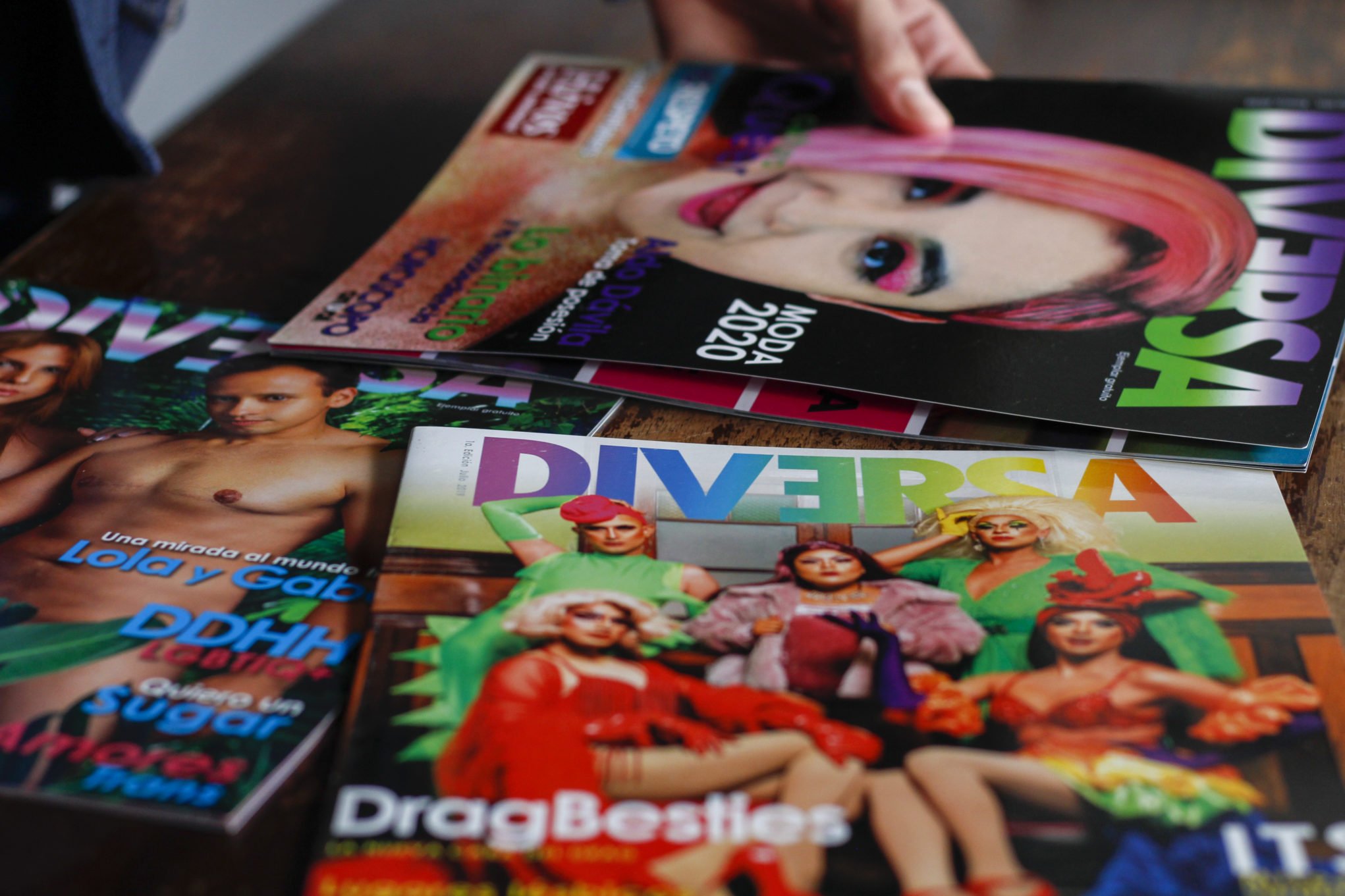
It’s why carving out space for LGBTQ people is so important in Guatemala. Morales, for instance, recently launched Diversa, the first magazine of its kind in the country. “I wanted to show that we are more than the negative stereotypes they have of us—we are more than bad, sexually depraved people,” he says. “We are culture, we are education, we are art, we are diversity.”
Morales also works for the queer collective Diversity Gt, a communication platform, and makes the podcast “Diversa El Podcast” to cover LGBTQ issues. He believes in the power of communication and education to give positive exposure to the community and help make society more tolerant. “It is so important to let people know that we are here, that we exist and that we want to stay,” Morales says. At this point, he begins crying. He knows there’s a long way to go still. “Life is a lot harder for LGBTQ people in rural Guatemala. There is more discrimination and murders,” he says. “There is no justice.”
No matter the hardships, Morales and Manu would not change who they are. “Of course I am very happy with who I am and I try to remain aware of it,” Manu says. “I also know that it is a constant struggle, but being queer is a very necessary social and political commitment in a racist, classist, macho and religious fundamentalist country.”
“I want people to be happy with who they are. People won’t decide who you are going to be”, Morales says. “So yes, Guatemala is hard, we go through lots of homophobia, we get hurt. But we can be different and happy.”
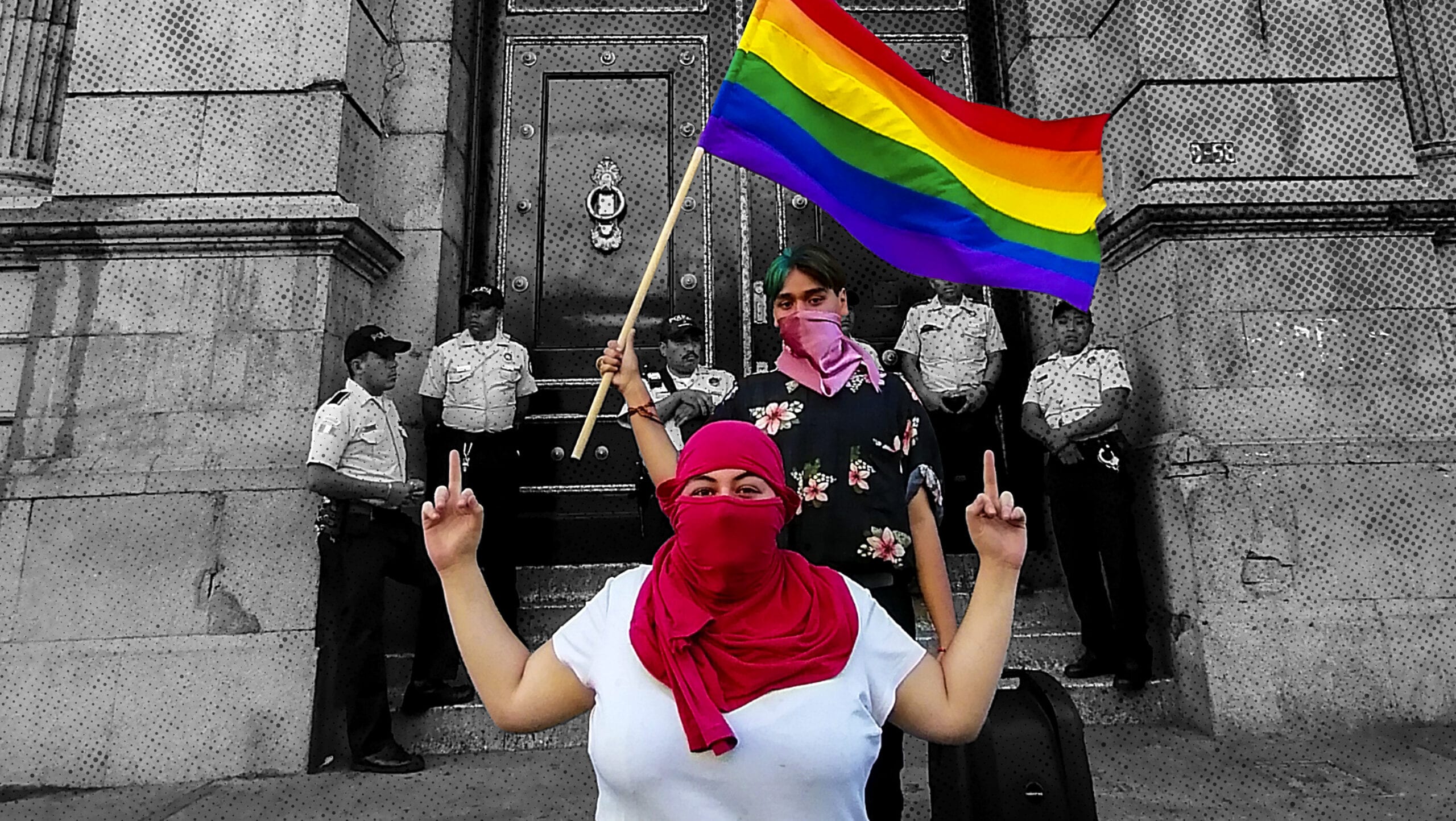
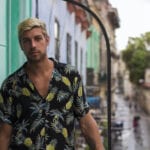
 Why you can trust Xtra
Why you can trust Xtra


